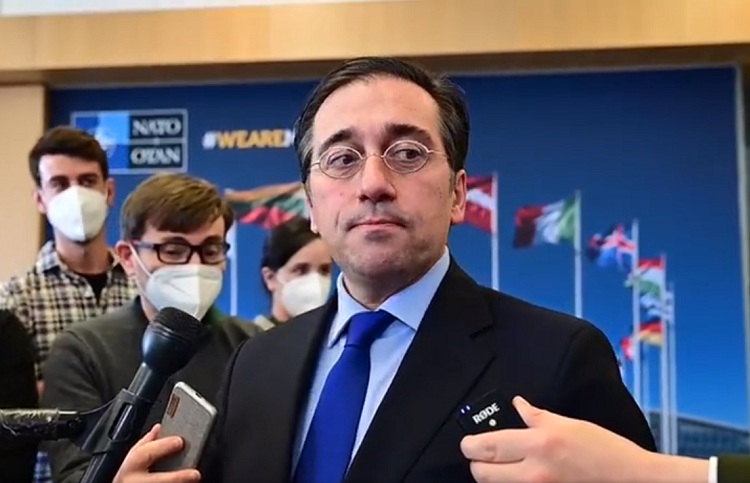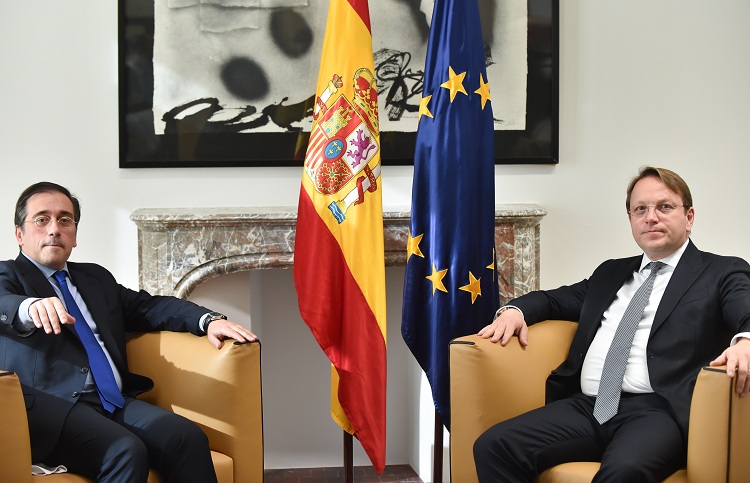The Diplomat
Foreign Minister José Manuel Albares stressed yesterday in Brussels the “seamless unity” both within NATO and between the EU and the Atlantic Alliance to “put an end to Putin’s war” in Ukraine.
“The objective with which I came on behalf of Spain to this meeting has been amply achieved, which is a seamless unity; it has been a seamless unity among the allies,” the minister declared at the end of the extraordinary meeting of NATO foreign ministers to address the escalation of the crisis in Ukraine following the offensive ordered last February 24 by Russian President Vladimir Putin.
The meeting, which was held at the headquarters of the Atlantic Alliance in Brussels, was also attended by the foreign ministers of Finland and Sweden and the High Representative of the European Union, Josep Borrell. Separately, Ukrainian Foreign Minister Dmytro Kuleba addressed his counterparts in a video message in which he described the deteriorating humanitarian situation in his country.
According to Albares, Borrell’s presence made it possible “to demonstrate that this seamless unity” within the Alliance “is also a seamless unity between the EU and NATO, seeking to put an end to Putin’s war, to an unjustified war, and for peace to return to the European continent as soon as possible.”
During the meeting, the allied ministers condemned “Russia’s brutal and unprovoked invasion of Ukraine” and expressed their “solidarity and support for the courage of the Ukrainian people and armed forces.” They also addressed NATO’s immediate response to the crisis. In addition to the thousands of additional troops that allies have already sent to the Alliance’s eastern flank, NATO is deploying for the first time its Response Force, with more than 130 aircraft on high alert and more than 200 ships, from the High North to the Mediterranean. “We will continue to do what is necessary to protect and defend every inch of NATO territory,” said Secretary General Stoltenberg.
Apart from that, the foreign ministers also discussed the need to support partners who may be at risk of the war in Ukraine spreading, such as Georgia and Bosnia and Herzegovina. They also agreed that they will not accede to Ukraine’s request for the implementation of no-fly zones and that no Alliance troops or aircraft will enter the country. “We understand the desperation, but if we do that we will end up having an all-out war in Europe, creating more suffering. We are not part of this conflict and NATO has a responsibility to ensure that it does not escalate and spread beyond Ukraine. That would be even more devastating and dangerous,” Stoltenberg warned.
The meeting was an opportunity for ministers to also address the longer-term implications of Russia’s aggression for Euro-Atlantic security. The Secretary General reiterated that “Russia’s aggression has created a new normal for our security, where fundamental principles are contested through the use of force”. In this new normal, ministers agreed that NATO’s relationship with Russia has fundamentally changed for the long term, but they remain committed to keeping diplomatic channels open to avoid any unintended escalation, misunderstanding or miscalculation.







